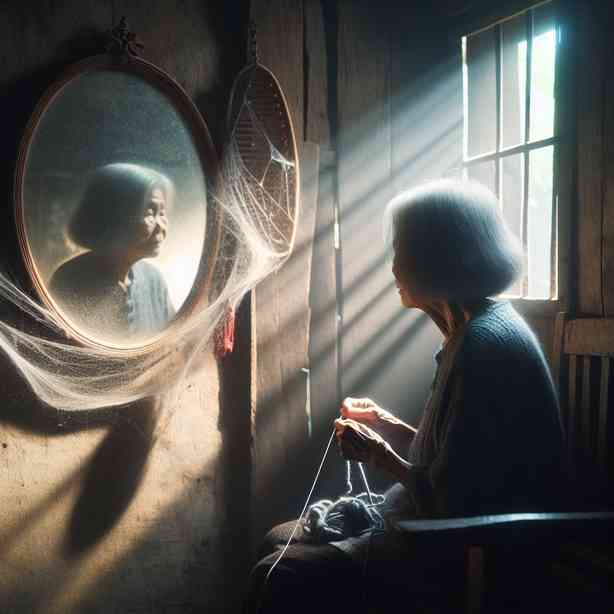
When you find yourself in a position where you no longer check the mirror anymore, it can evoke a range of emotions—everything from liberation to a sense of disconnection. For many, the act of looking in the mirror is routine, a daily practice of self-assessment and affirmation. However, there comes a time in life when this habit fades into oblivion, often signifying a deeper shift in one’s relationship with self-image and identity.
This phenomenon may begin subtly, with those morning rituals reduced to a quick glance. As time goes on, the moments you do take to reflect on your appearance can feel less significant. It may be that life’s demands take precedence or that a greater understanding of self-worth arises, emphasizing internal values over external appearances. This transition can inspire a journey of self-discovery, prompting you to reassess your values and priorities.
A key factor contributing to this lack of attention to the mirror is the growing realization that appearances, while they may hold some importance in society, are not the definitive measure of one’s worth. Society often bombards individuals with images and ideals of perfection that can leave anyone feeling inadequate. When you begin to prioritize how you feel inside and foster self-acceptance, the appeal of the mirror can diminish. This shift is not merely an act of neglect but rather a profound statement about what truly matters.
Moreover, as we age, the relationship with our self-image evolves. In youth, we often find ourselves preoccupied with meeting societal standards of beauty. However, maturity brings a certain wisdom, allowing for a broader perspective on life and significant experiences. The less time spent in front of the mirror may reflect this sense of freedom from societal pressures. Instead of focusing on fleeting concerns about blemishes or hairstyles, we can appreciate aspects of ourselves that are far more enduring—our kindness, resilience, and wisdom.
Furthermore, examining relationships can also play a crucial role in our self-perception. Engaging with people who uplift and appreciate us for who we are can profoundly influence how often we feel the need to check the mirror. Positive relationships foster environments where our self-worth is rooted in love, respect, and emotional connection rather than superficial judgments. Such connections help validate our intrinsic value, reducing the need for constant physical reassurance.
In addition to emotional and relational factors, cultural influences cannot be overlooked. In various cultures, there are different attitudes toward beauty and the human body. Some cultures place immense value on aesthetic appeal, while others prioritize character and interpersonal qualities. The cultural lens through which we view ourselves can significantly impact our habits, including the ritual of checking the mirror. Understanding this broader context can help relieve personal pressure, allowing for a more compassionate view toward oneself.
It’s important to recognize that stepping away from the mirror does not signify a lack of self-care. On the contrary, it can represent a holistic approach to health—both mental and physical. Emphasizing well-being, mindfulness, and genuine self-expression takes precedence over physical upkeep. Activities that promote a sense of fulfillment, such as exercising, pursuing hobbies, or engaging in creative endeavors, often generate positive self-esteem that doesn’t rely on outward appearances.
Even so, allowing oneself to check the mirror less can sometimes encounter resistance or societal judgment. Questions may arise about the shift in how we present ourselves to the world. Some may perceive a less polished exterior as a sign of neglect or laziness, while in reality, it can reflect a shift in priorities and values. Engaging in conversations about self-image can debunk myths surrounding appearances and cultivate more profound acceptance of diverse expressions of beauty.
Ultimately, the journey away from the mirror leads to a deeper understanding of self. It’s an exploration of self-worth that transcends appearances, diving into the essence of who we are. Each glance away from the mirror signifies a step toward embracing authenticity and individuality, inviting a more profound connection with oneself and others. Realizing that one’s value is not solely tethered to outer beauty can inspire greater engagement with life, fostering a sense of purpose and belonging that resonates far beyond the surface.
In conclusion, when you no longer check the mirror, consider it an opportunity for introspection and growth. Embrace this transition as a chance to connect with your inner self and prioritize what brings you true happiness. As society continues to evolve, so too can our relationship with self-image and personal identity. Fostering self-acceptance and appreciating the myriad aspects that make us unique will ultimately enhance our lives and the lives of those we encounter. By valuing inner beauty above all, we cultivate a more compassionate world, not just for ourselves but for everyone around us.


